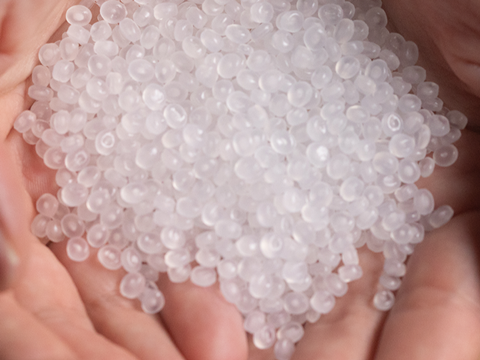
A.P. Moller Holding’s new venture, Vioneo, is set to manufacture fossil-free plastic resins with a green menthol feedstock at an upcoming production complex in Antwerp – aiming for reduced reliance on fossil resources, fewer greenhouse gas emissions, and increased traceability.
The plastic industry currently relies on fossil feedstock during the production processes, with a lack of end-of-life recycling contributing to plastic pollution. In order to meet net-zero targets by 2050, A.P. Moller highlights the importance of developing and commercializing plastics that do not utilize fossil resources.
Vioneo’s ‘innovative and proven’ technology utilizes green methanol as a feedstock and claims to produce fossil-free polypropylene and polyethylene at scale. Apparently, this unlocks a fully segregated and traceable supply chain that prevents the mixture of certified and non-certified feedstocks.
Reportedly, production will be powered by renewable electricity, thus reducing greenhouse gas emissions ‘significantly’. The final resins are also set to be ISCC PLUS-certified and 100% fossil-free, with A.P. Moller anticipating that the output will be used in packaging, medical appliances, home goods, automotive applications, and more.
Vioneo plans to establish its first production complex in Antwerp. It is anticipated that the location will give the plant access to renewable energy, strong export facilities, and chemical industry expertise from ‘Europe’s largest’ integrated chemical cluster.
An investment of nearly €1.5 billion in equity and debt will be required for the production plant and supply base, Vioneo believes. This funding will apparently depend on broad stakeholder support, including updated regulatory frameworks and policies supporting a competitive environment for fossil-free plastics; it is also thought to require lower energy costs and other improved conditions for the chemical industry in Europe.
Long-term offtake agreements from customers are also desired, with Vioneo holding discussions with several major brands in the healthcare, automotive, fast moving consumer goods, beauty, and home products industries.
Plans for the plant are scheduled to take place in phases. A Front-End Engineering Design (FEED) is hoped to begin in Q4 2024, and a Final Investment Decision (FID) is projected for 2025. Commercial operations could begin in 2028, Vioneo says.
Jan Secher, previously the CEO of Clariant AG and Perstorp Group, has been selected as the chair of Vioneo’s Board of Directors. Meanwhile, Alex Hogan – once business director at INEOS Olefins and Polymers – will be chief executive officer at Vioneo, effective 11th November 2024.
“A.P. Moller Holding is committed to driving the transition to low-carbon and fossil-free sources by advancing green methanol production and its applications across various sectors,” explains Jan T. Nielsen, chief investment officer at A.P. Moller Holding. “The launch of Vioneo marks a significant step in this commitment.
“With Jan Secher and Alex Hogan leading the initiative, I am confident that Vioneo is well-positioned to spearhead the shift towards a more sustainable plastics and chemicals industry. However, success also depends on other key stakeholders being willing to lean in together with us.”
Jan Secher continues: “Vioneo represents a strategic shift in plastics production. By adopting advanced proven technologies and green methanol, we are addressing fundamental environmental challenges associated with conventional plastics, while simultaneously offering a significant opportunity for Europe to lead the defossilization of the €5 trillion global chemicals and materials sector, securing a leading position for Europe in the transition.
“We are excited about the potential to lead this transformation and contribute to a more sustainable future for the plastics industry.”
Last year, the German Federal Ministry for the Environment, Nature Conservation and Nuclear Safety (BMUV)’s Environmental Innovation Program made a similar effort to avoid fossil-based plastics – this time by funding a demonstration production plant for traceless’ plant-based, compostable biomaterial. Also called traceless, the material sources its plant residues from industrial grain processing and can be used in flexible films, paper coatings, adhesives, and other packaging applications.
Metsä Group also aims to transition into fossil-free raw materials with a state-of-the-art tissue mill. Fresh fibre pulp is set to be sourced from sustainably managed Nordic forests and used as the main raw material, and the plant expects to reach an annual capacity of 240,000 tons.
If you liked this story, you might also enjoy:
The ultimate guide to the Packaging and Packaging Waste Regulation in 2024
How are the top brands progressing on packaging sustainability?
Sustainable Innovation Report 2024: Current trends and future priorities
Everything you need to know about global plastic sustainability regulation














No comments yet